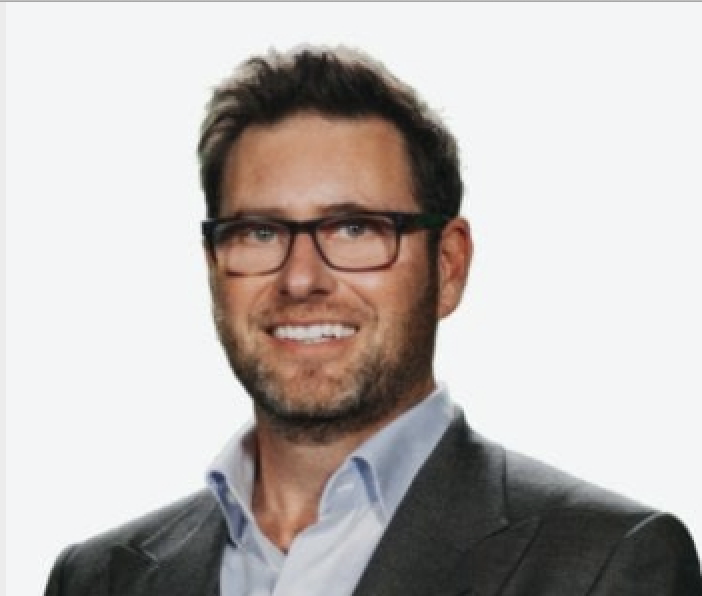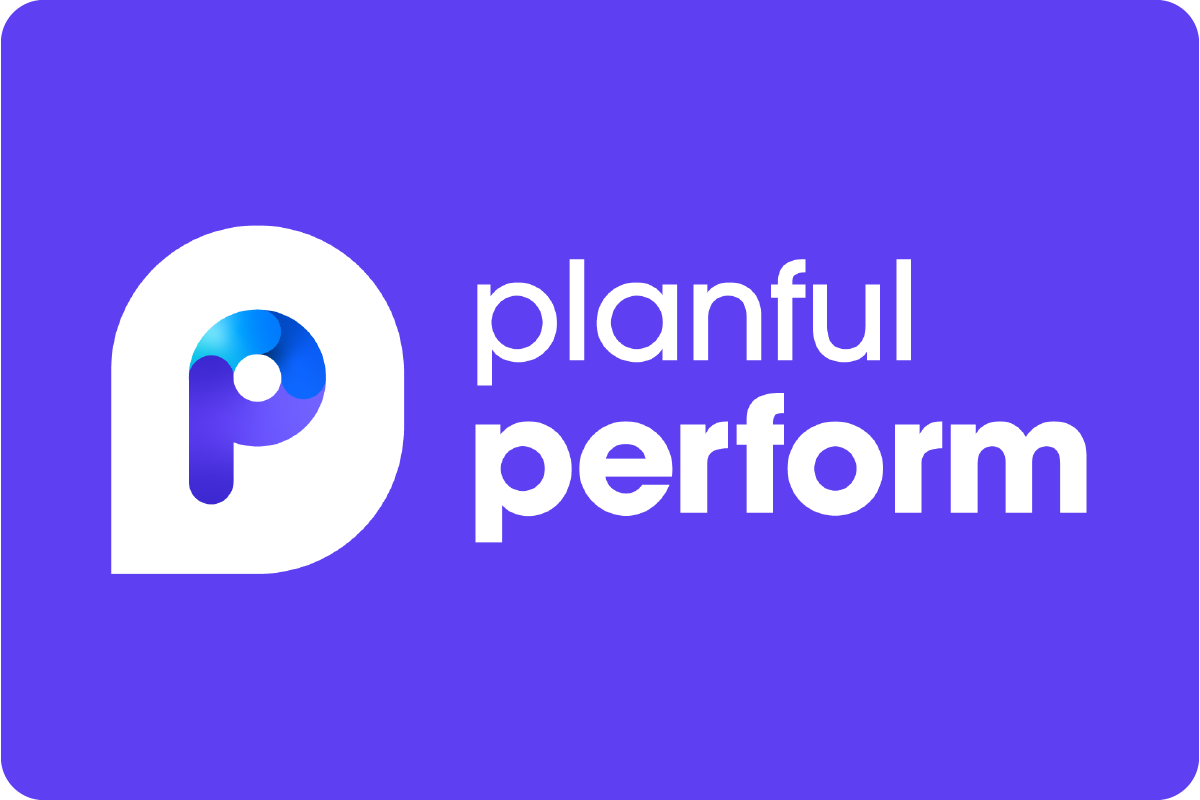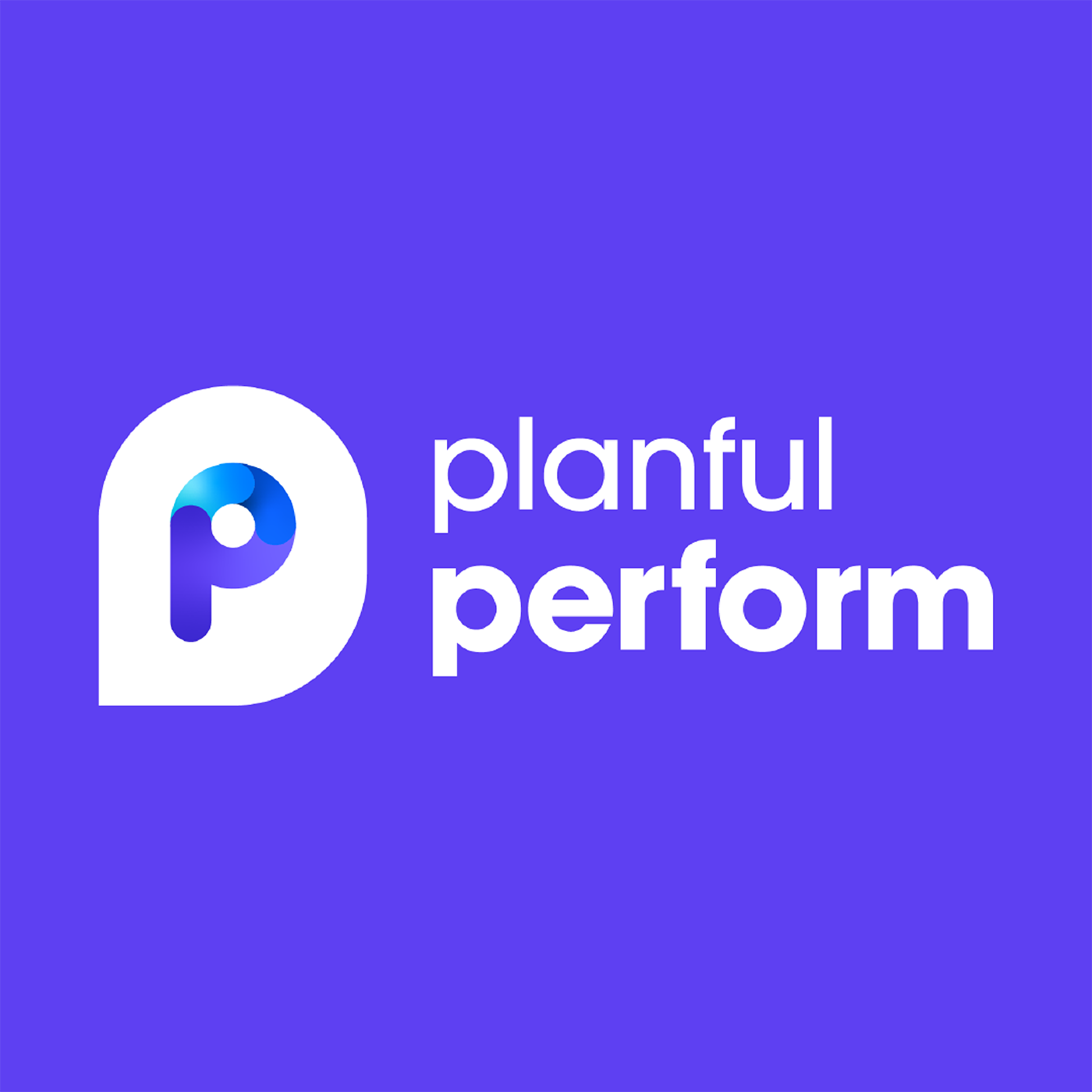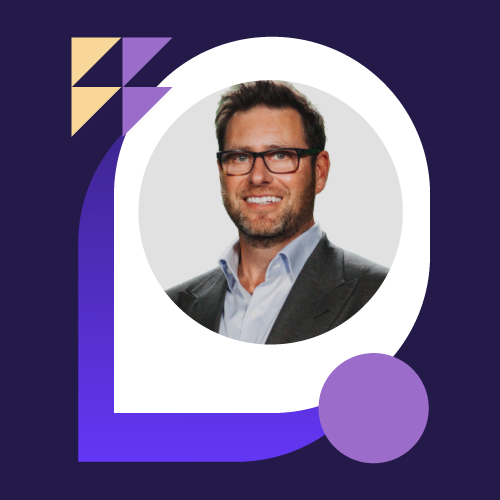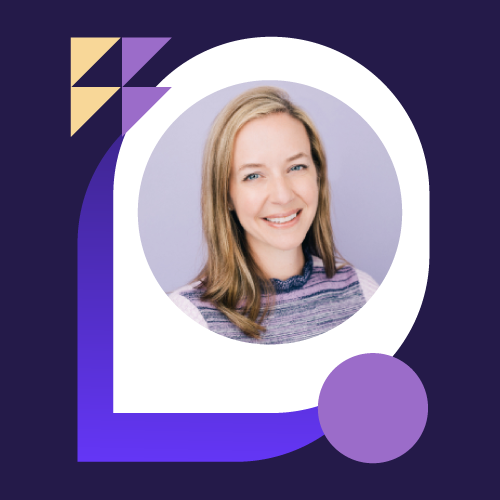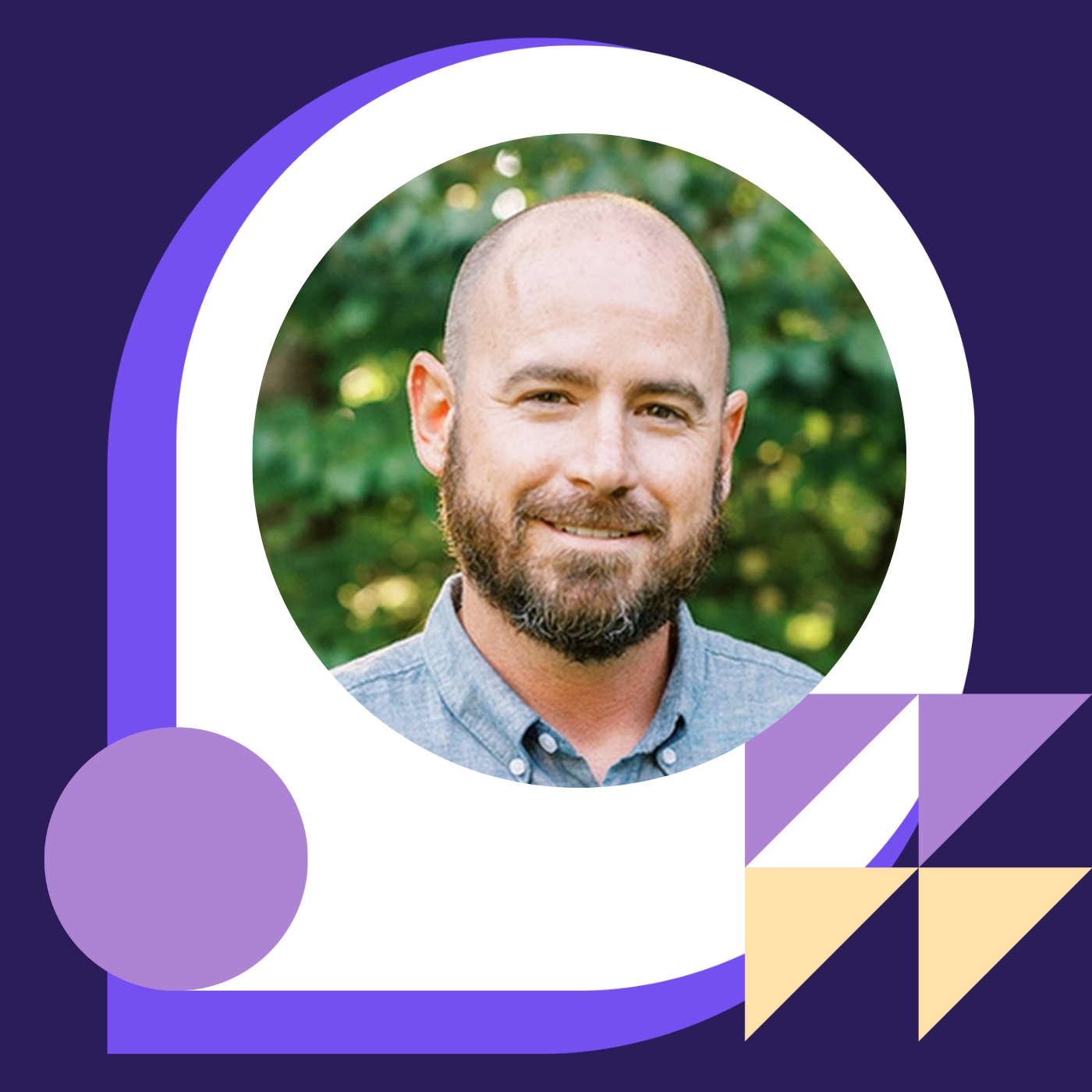Thrive or Get Crushed: Q&A With Constellation Research with Ray Wang and Grant Halloran
- 0.5
- 1
- 1.25
- 1.5
- 1.75
- 2
Grant: Thank you so much, Annette and Rowan Ray. Fantastic to see you again. Welcome back to The Planful Stage here.
Ray: Yeah, this is awesome. I'm really happy to be here.
Grant: Yeah, we have some really cool stuff to talk about. You are one of the most favorite people for me to talk to because you're so insightful and you just travel the world, working with CEOs and the whole C- suite in so many different industries. I wanted to just begin for the audience here with some insights, for what you're seeing yesterday in my keynote, I talked about how the world is just changing faster and it seems every keynote I do in the last five, six years, that seems to be a theme. But as many in the audience know, it just seems to have gotten even crazier. What are you seeing? What are those discussions with CEOs? What are those big macro forces that are at play right now for virtually everyone in the audience?
Ray: It's a great point, right? What's going on right now is pace of change. If you've talked about massively occurring, but you're seeing the great resignation people are saying, I don't like my job. I'm going to change. I'm looking at my work- life balance. We're seeing geopolitical tensions US versus China still continuing right? What does that mean? Routes different competition for different types of business models, political models that are going out there. We've had a space race, right? That's pretty interesting right? People are going out there trying to crosstalk.
Grant: Are you going to get up in a rocket soon, where you are?
Ray: I don't know, I get motion sick. We'll see what happens, so.
Grant: It's crazy and it's the things you mentioned, but consumer tastes are changing so rapidly. Loyalty, does that exist anymore?
Ray: It doesn't you're right. People are trading loyalty for convenience, loyalty for value, loyalty for brand emission, right? They are changing loyalty, just because they're fickle because they can. Loyalty for the fact that," Hey, there's no availability, so I'm just going to switch a product." That happened in the middle of the pandemic. You couldn't find the brand you liked and you just said, fine, I'll just take whatever you got, right? And you're okay with it.
Grant: Yeah, it's crazy. So we are really living in a digital world today. Everything's being digitalized in an interview that you and I did recently, we talked about software eating the world, and now AI and machine learning is coming along and eating software and just automating so many things of our everyday lives in business and in our consumer lives, you've written a book. Everybody Wants To Rule The World. Recently, you're a prolific author. I've been reading through this and I love it. It's fantastic. I recommend everyone grabs a copy of this, but Ray, you have some very specific insights in this book around what every type of business should be thinking about. We can't touch on all of it today, but there are a couple of things that I thought would be good for our audience. One of them is this concept of a data- driven digital network. Could you unpack that a little bit and tell us what that means and maybe give an example of a more traditional kind of company that's done something successful with this.
Ray: Grant that makes a lot of sense. The DDN is the hundred year platform that's inside your organization. That's what allows these companies to do really well. And what they do is they aggregate a large network of customers or devices or input, you're looking for the biggest number you have. The second thing, what you're trying to do is you're competing on a concept called data supremacy. You're capturing data and insights all across the board. You're not sure what we're going to use it all, but you have an idea and that plus the network gives you the ability to figure out how to take back customer count control, be more responsive to your customers. And then of course, from there, you're thinking about digital monetization that goes on. And of course you need a long- term mindset. Now, great example of that is Royal Phillips, right? They are building medical devices, electronic equipment that actually connects back to health systems right. And inside the-
Grant: They are one of the 130 year old company, I think.
Ray: They are a really old industrial company, right. But they've gotten digital, right. Right and Yurin Toss is one of the guys back there has been figuring out how do we digitize this? How do we deliver digital business models, field service on the fly? How do we actually monetize this? Can we get subscriptions against us? Can we do remote field service? Right and can we get that information to help us plan better to help us think about manufacturing capacity, features, what people want to use, mitigate risks, identify breakages before they happen. And it's all happening in an industrial company. That's over 130 years old.
Grant: It's incredible. I mean, a lot of this is signal intelligence. This is one of these really important aspects without that platform of data and the vast amount of it, then you're just not going to be able to generate those signals. The competitive advantage for them must be massive.
Ray: It is. And having that signal intelligence is important. You're trying to extract the signal from the noise. There's a lot of data out there, but the question is, can you put that data to use as a competitive advantage.
Grant: We've seen, and we've talked a lot about this. We've seen all the C- suite roles frankly have evolved. I mean, I've spent some time in the marketing technology industry in the past and watching the evolution of the CMO has been incredible from being, more of a creative brand oriented person to now effectively having to be an advanced technologist, to be able to meet the needs of their customers, create engagement. We are also seeing that with CIO's have changed, but in particular for our audience CFO, that that role has changed dramatically. Just, one or two thoughts on what is it that our audience CFOs and the audience and the staff that work with for CFOs, what should they be concerned about? What's something that they could bring from this topic. That's real for their roles. A decision velocity for instance, I think is what applies for every aspect of the business. But is that something that this audience could be focused on?
Ray: I think it's an important point, right? Decision velocity is important because you and I make a decision per second, right? It takes us what a week out of management committee, no, a quarter, right? Maybe a year.
Grant: Yeah.
Ray: It takes a long time to make decisions. Now for the little decisions that we make all the time, we should be able to figure out ways to automate it. Now machines make decisions a thousand times per second, that asymmetry is really what's behind decision velocity, where you can actually put automation in place. That's going to allow you to collect information faster. That's going to allow you to put that information out there. And when you make faster decisions, we're going to be competing at decision scale.
Grant: Right and to be able to do this, this whole frontier of AI and machine learning for some of the audiences may be relatively new stuff, maybe a little scary for them, but something we were talking about as we were preparing for this is that, it's almost you haven't quite missed the boat, but you're going to have to really hurry up here, if you want to get on this train, you want to touch on that a little bit.
Ray: I think it's important for everybody to realize that you've got to get everything into the Cloud first, you got to bring that data and think about the upstream and downstream implications that are out there, but more importantly, right? We've got to figure out what business questions to ask the analytics, automation and AI. Remember that three A's are very important. Analytics, automation, and AI. Analytics allows us to ask the right business question. Automation gives us the ability to actually capture that information at scale, even capture the journeys and experiences along the way. And the AI gives us the business graph that powers, those DDD ends that we talked about. Those data- driven digital networks rely on your ability to keep bringing that information, because we want to get to a concept called precision decisions. I want to reduce false positives. I want to just false negatives, but I got to have enough data to do it. And I got to use automation to get there.
Grant: In your experience, working with lots of different companies in different industries, an expression you've used before is vanity metrics, right? So let's touch on that for a minute because my experience, a lot of business people think they're doing well with data and insight and decisions and everything else, but touch on this concept of vanity metrics. And how does that contrast with what you're talking about being the right sorts of questions to ask.
Ray: Yeah, so vanity metrics to be," Hey, I've got 10 million views." Great, did anyone do anything with it? Right. So unless you tie it to a financial metric or tie it to an action, you don't have anything that's not a vanity metrics. So the vanity metric does nothing. It just states we've got something, but when it becomes an actionable metric, you can now track against a financial number, which is important, right? So number of views, fine, but number of leads and dollar value of leads generated per view. Now that's much more important, right? Or number of shares per view, that actually creates an actual metric where somebody took it and did something with it. So that's very important.
Grant: Yeah. I love that. That's a real challenge, I think for not only the audience, but for us as well, to be really thinking about how do we take those operational and commercial metrics and turn them into financial metrics that will drive, the story or the business. So that's a lot here and I recommend everyone reads the book because there's a lot more to unpack here. If you're not a constellation research client, you should become one and get the insights from these guys, but let's give the audience some specific advice. What can they do this afternoon? What could they do before the weekend to take a first step in this direction.
Ray: I think the first thing you should do is start asking the right business questions, right? For example, do I add a million dollars to my advertising budget? Or do I add 10 more FTEs in marketing, don't know the answer, right. But it's okay. Ask questions where you don't know the answer because now's the time to figure that out. And that's the important part, get those business questions in place. And if you start there, you now have the ability to actually connect the dots between what data's missing and what data is required. So you can get that planning cycle in place.
Grant: And so once we've asked those questions, I imagine that having the right data and having all that data in an organized place in the Cloud, like you mentioned, right? Why in the Cloud versus, their Access database or some SQL database on premise. What is it about the Cloud? Obviously we're a Cloud company, so we get it, but tell the audience. Why is the Cloud so important for their business today and the future?
Ray: Well, the reason it's important to have this in the Cloud is because we want to be able to use that, to handle the compute, handle the storage, handle the orchestration, bring all that information into one spot so that you and your team can collaborate and work against that data so that you never have to worry about something being in sync or real time or not available, right. That's going to be answered by getting that into the Cloud. And then more importantly, what you want to do is take advantage of all those Cloud capabilities so that you get the innovation and the updates at speed.
Grant: It's an exponential technology.
Ray: It is.
Grant: I mean, if you're starting on this journey, where are you going to be in five years in terms of the data that you have, the questions that you're asking, the interrogation that you're putting those data sets through. So you need technologies that are going to scale.
Ray: Yes.
Grant: On an almost infinite basis without the requisite cost increased. Because as we know, the cost of all Cloud computing is going to go down on a unit basis over time right. That's terrific. Well, Ray, any final thoughts that you want to share with the audience here?
Ray: Yeah, I think we're at the beginning of a new business cycle and we really should take advantage of that if you're starting at this cycle, make sure you think about where analytics, automation and AI play a role. You definitely want to start building those AI capabilities by getting your data house into order, by making sure that you get into the Cloud. By making sure you start asking the right business questions and start looking at where automation and AI can give you an exponential advantage.
Grant: Yeah, that's awesome. And it's about speeding up too. So the speed at which you've done things in the past, as you say we're on the cusp now of this new frontier, this is why our conference theme is accelerate now because we're seeing so many businesses coming out of what we've just had to endure in the last 18 months or so, realizing that there's so much opportunity here, we need to accelerate our business and go forward. And for those and the audience that are, in the back office, you're playing a critical role in being able to drive that decision velocity, a key element of this future.
Ray: Yeah and here's the interesting thing. It's not just about being in the back office. You have the office of the CFO now taking a bigger stance, right? You're automating the regulatory compliance. You're automating operational efficiency, but you're putting your best people on new business models and on growth. And that's going to be the difference.
Grant: All right. Thank you again, your passion is incredible. The insights are incredible. It's always great to have you here. Thank you my friend.
Ray: Hey, thanks man.
Grant: We doing that?
Ray: We doing that.
DESCRIPTION
Businesses are facing massive pressures due to extreme competition, digital disruption, and global dislocation. But some companies are poised to not just survive these headwinds, but thrive by recognizing the hidden opportunities. Join Grant Halloran, CEO of Planful, for an interview with Ray Wang, chairman and founder of Constellation Research, who will draw on the wealth of research generated by his firm to help you adapt, stay relevant, and find success in this new reality. Ray will also share highlights from his newly published book, Everybody Wants to Rule the World: Surviving and Thriving in a World of Digital Giants.
Today's Guests

Ray Wang
